A Report on the Lively isaScience Community
Following a long wait due to the coronavirus pandemic, the 8th isaScience Conference went forward in its first hybrid edition—both on location in Reichenau an der Rax and online—from 11 to 15 August.
isaScience 2021 was an unmitigated success: for the first time ever, the lecturers and the audience had the simultaneous ability to engage in exchange on-site at Schloss Reichenau and online. 2021’s hybrid format doubtless represented a great challenge, but the international isaScience community—which has grown considerably in recent years—emerged from this effort all the stronger. It was evident how the interdisciplinary and international networks that isaScience has built up over the past several years had survived despite the more difficult conditions entailed by the 2020 coronavirus pandemic, which have strongly challenged international research communities while also promoting their rapid digitisation over the past 18 months.
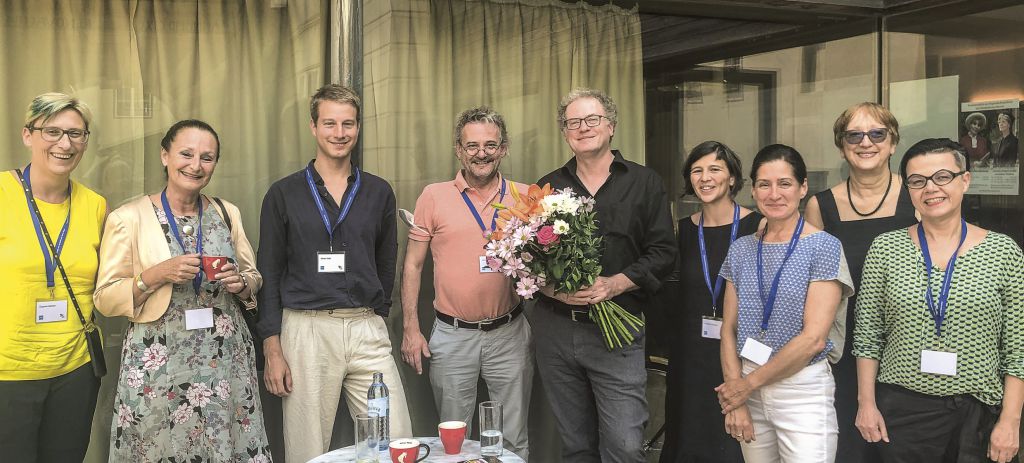
This four-day conference bore witness to 33 lectures associated with 11 thematic panels. The lecturers and audience hailed from a total of 18 different countries: these included Austria’s eastern and south-eastern neighbours as well as South Africa, Scandinavian countries, and countries in both North and South America. Of the four keynote lectures, two were given live and two online—thus touching off lively and detailed discussions both on location and in the virtual realm. Milena Dragićević Šešić of the University of Arts in Belgrade, occupant of the UNESCO Chair in Studies of Interculturalism, Art and Cultural Management and Mediation in the Balkans, devoted her lecture to the “jubilee” of Yugoslavia’s dissolution.
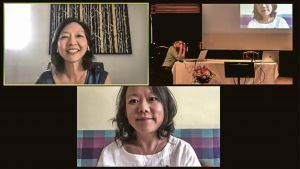
She spoke about national “mythomotorics”, a term borrowed from Jan Assmann’s Theory of Cultural Memory. Šešić explained how the Yugoslav myths that had grown up around the two “mythomotors” of anti-fascism and “fraternity and unity” had supplanted “ethnonational” heroes. The subsequent (re)construction of the individual successor states’ identities, however, has since seen these heroes return as part of a culture of memory decreed from above. Her conclusion: present-day cultural policy in the Balkans serves various political ambitions that use public space for the erection of monuments in the context of this “new” poetics of nationalism.
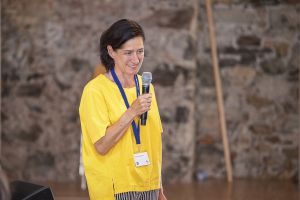
With an eye to the danger posed by nationalism’s universal resurgence, ethnomusicologist Denise Gill of Stanford University presented a more optimistic perspective on the musical canon’s diversification within academia. In order to decolonise dominant and Western/hegemonic musical canons, new and different genealogies that were buried by conventional practices of canonisation must be made audible. But even within ethnomusicology, held Gill, decolonial practice would have to establish itself as a commonly held self-critical attitude. This line of thought was also taken up in the keynote delivered by musicologist Mina Yang of the Keck Graduate Institute at Minerva University, who warned against reverting to old patterns of classical music teaching, production, and marketing in the “post-COVID” era. Yang posed central questions that apply to musical institutions in general insofar as they desire to take on present-day challenges in a contemporary manner: How can we stand up for people who make classical music while being subject to working and living conditions that have turned out to be even more contingent and precarious than previously thought? How can aspiring musicians be inculcated with sensitivity to the injustices that persist in this profession and to the power imbalances that still characterise numerous music curricula?
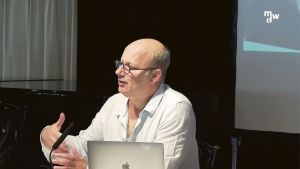
Critically advancing this necessary sensitisation to matters of social justice was also the focus of the concluding lecture on musical heroism by music historian Esteban Buch of the École des hautes études en sciences sociales in Paris. Beginning from criticism of Beethoven’s hero-status in canonised music historiography, Buch questioned whether the hegemony of that which is broadly defined as classical music is indeed legitimate. Continuing from the topic of Beethoven, Buch voiced the assumption that, today, popular music genres evoke aesthetic experiences of heroism far more strongly than does classical music, citing the Wagnerian recycling to be heard in John Williams’ film music for the Star Wars movies as an example. And he stated that in view of the fact that our societies continue to demand hero(in)es, the fields of music and musicology must be sure to deal with contemporary developments and include these in their curricula.
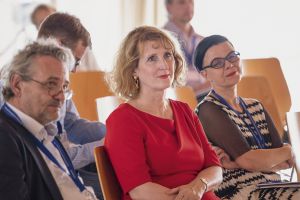
In the thematically diverse panel discussions, a strong focus was placed on feminist, decolonial, and antihegemonic deconstructions of masculinity, whether in (heroic epic) films, in historical and biographical perspectives on music history, or in contemporary academic events and policies of cultural programming. The lecture-performance by Pia Palme, for example, emphatically pointed out the necessity of the inclusion of women* with reference to the symposium “einklang freier wesen” put on by the Center for Art and Media Karlsruhe. And it was then with “feministing”—which more or less entails loudly demanding gender justice among artists in arts and cultural institutions—and accompanied by the sounds of Reichenau’s church bells, that this isaScience concluded and looked into the future with—to quote Antonio Gramsci—“optimism of the will”.
Publication isaScience 2018
Book presentation on 20 January 2022, 5:30 p.m. (in the University Library Reading Room and virtually): Music and Democracy. Participatory Approaches. mdwPress 2021, Gold Open Access.
